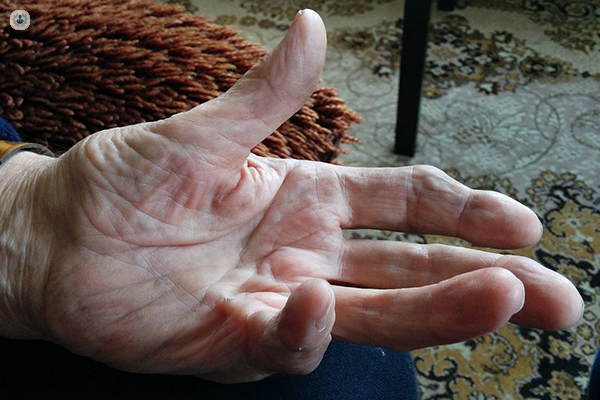Does Dupuytren's contracture always need surgery?
Written in association with:Mr Adrian Simons is a highly regarded and experienced consultant orthopaedic surgeon who specialises in Dupuytren’s contracture, and he’s on hand here in this article below to tell us all about the condition, including whether surgery is always required for the potentially hand-debilitating condition.

What are the most popular treatment options available for Dupuytren’s contracture?
Unfortunately, the only available treatment option available for significant Dupuytren’s contracture is surgery to release the contracted tissue in the hand and hopefully straighten the finger out.
Other treatments like massage and physiotherapy have been tried and there used to be injections available for the condition, but they are no longer available in the UK.
What are the latest developments in treatment for Dupuytren’s contracture?
Well, as I’ve said before, injections were available in the UK for the condition until the company withdrew these injections. As a result, there really are no new developments in treatment for Dupuytren’s contracture.
The treatment really comes down to living with the condition if it is mild and considering surgery if it is severe.
Does the condition always need surgery?
No. Many people only have a contracture in one or two fingers. The general threshold is said to be that once the bend in any of the joints of the hand reaches about 30 degrees, then that gives significant disability in the hand, and that’s when treatment is generally required.
Are there any lifestyle changes patients can make to slow down the progression of Dupuytren’s?
Unfortunately, not. It is often associated with family history, diabetes, liver disease, and epilepsy. Apart from controlling diabetes, no other lifestyle modifications have been shown to make a difference in relation to slowing down Dupuytren’s progression.
It is important to highlight that physiotherapy is very important after Dupuytren’s contracture surgery, but massage or physiotherapy won’t make a difference before getting to the point of requiring surgery.
To schedule in an appointment today with Mr Adrian Simons, just visit his Top Doctors profile.


